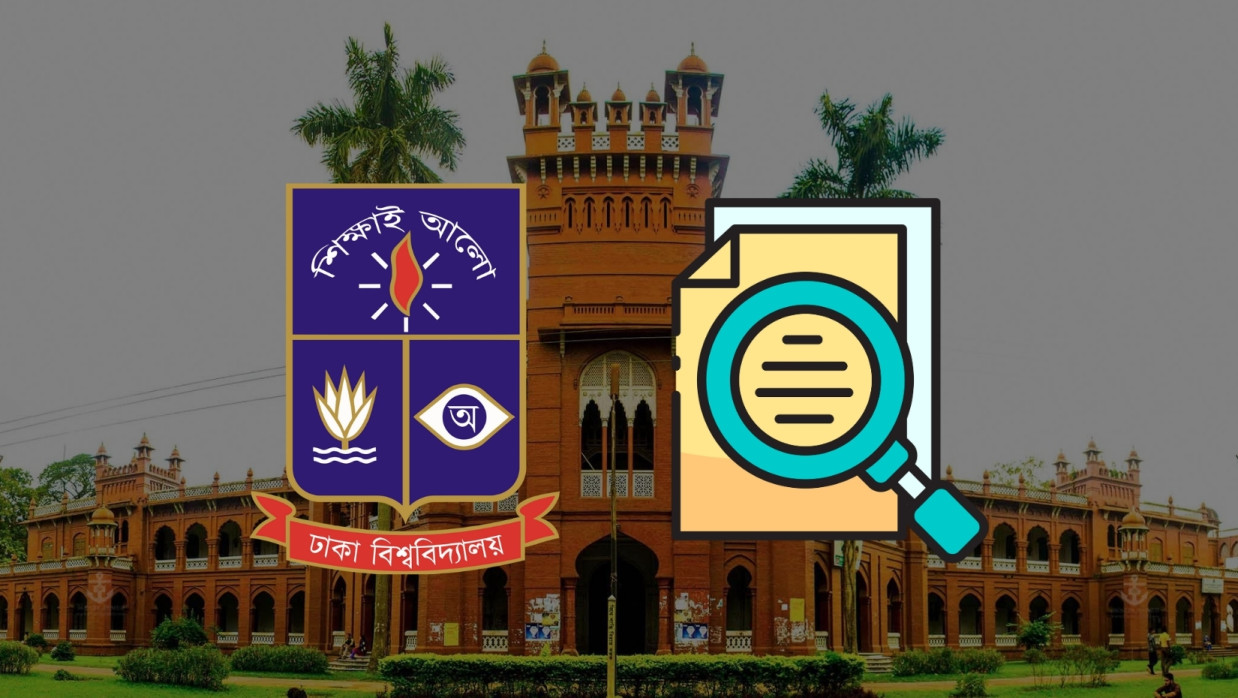
Dhaka University's Bengali Plagiarism Detection Software Remains Unused Three Years After Inauguration
- ২৫ সেপ্টেম্বর ২০২৫, ১০:৫৯

A groundbreaking software developed at Dhaka University (DU) to detect plagiarism in Bengali-language research papers, assignments, term papers, theses, and other articles—named DEUBD21—has gathered dust for over three years since its formal launch. Created by Assistant Professor Abdus Sattar and his team at the university's Institute of Information Technology, the tool was intended to address a critical gap in academic integrity for Bengali writings. Yet, despite its potential, it has never been implemented, and many stakeholders remain unaware of its existence.
The software was inaugurated on August 2, 2022, at the Abdul Matin Chowdhury Virtual Classroom by then-Vice-Chancellor Professor Dr. Md. Akhtaruzzaman. At the launch, developers highlighted its capabilities: verifying originality in Bengali texts, identifying copied sources, calculating similarity percentages, and providing links to referenced materials. It was designed to initially incorporate primary sources like Bengali research articles and assignments, supplemented by Wikipedia and academic journals, to benchmark new submissions.
However, DU continues to rely on the foreign software Turnitin for English-language academic works, leaving Bengali outputs—prevalent in most arts faculty departments—unchecked through manual methods. This creates significant loopholes, as experts note, with no digital tool available for the majority of theses and papers written in Bengali.
When contacted by The Daily Campus, Deputy Registrar G.M. Mijanur Rahman of the Administration-1 wing, who oversees faculty-related activities, said, “Professor Sattar (Abdus Sattar) is abroad. He may not have handed over the software to the university. The Central Library or ICT Cell would know better.”
Additional Director of the ICT Cell, Mostak Ahmed, added, “As far as I know, practical implementation did not progress after the inauguration. It hasn’t been transferred to our ICT Cell, and we haven’t worked on it. The Central Library authorities might provide more details.”
DU Registrar Munshi Shams Uddin Ahammad stated, “I have no idea about this. I haven’t been in the position long, and no related information has come to my attention during my tenure.”
The Central Library's Planning and Development Wing, responsible for verifying originality in theses and research, confirmed the tool's dormancy. Wing Director Anichur Rahman explained, “Professor Abdus Sattar did prepare the core work for DEUBD21. But it requires inputting vast data from Bengali journals, books, and articles. Without that, how can it detect similarities? Not just any input—texts must be in Unicode format, as 'Sutni MJ' isn't supported online. Much work remains, and the inventor had several requirements that the university couldn't fulfill. Funding was a major factor.”
Acting Chief Librarian Professor Kazi Mostak Gausul Hoq remarked, “To my knowledge, the library has no software for checking Bengali plagiarism. DEUBD21 may have been experimentally launched but never operationalized. I hadn’t heard of it before today—I'll inquire if it was ever used.”
Efforts to reach inventor Abdus Sattar via calls, messages, and emails over several days went unanswered, as he is abroad pursuing a PhD. Similarly, Institute Director Professor Dr. B.M. Mainul Hossain could not be contacted. Senior Administrative Officer Abul Khair Md. Din Islam noted, “Abdus Sattar went abroad for his PhD. I don’t know about it. Professor Showaiub Dik guided the development—he might know.” An email to Professor Dik also yielded no response.
The lapse stems partly from university oversight: despite the eight-month effort, DU provided no funding or resources for data collection to make the software functional, offering only a ceremonial inauguration. Sources express concern that this valuable technological asset risks being wasted.
Professor Tariq Manzoor from the Bengali Department emphasized the need for such a tool but cautioned its limitations. “There’s no denying the necessity for plagiarism verification software. However, it may not fully work due to incomplete digitization—many Bengali books and research aren’t in Unicode softcopy. Paraphrasing also complicates detection; ultimately, subject experts must decide originality. From now on, all university publications should be uploaded in Unicode Word format, with efforts to convert older materials. That would simplify verification.”
DU Pro-Vice-Chancellor (Education) Professor Dr. Mamun Ahmed commented, “I have no specific information on this software. We need to find out where it is or who holds it—if it exists, it’s interesting. From past experience, many softwares launched with fanfare fail to deliver in their intended role or function properly. We must investigate if it’s a quality issue or something else.”
The article highlights a broader challenge in Bangladesh's academia, where a 2023 DU anti-plagiarism policy mentions potential use of DEUBD21 for student papers, yet implementation lags. As of now, the software's fate remains uncertain, underscoring calls for renewed institutional commitment to localize academic integrity tools.